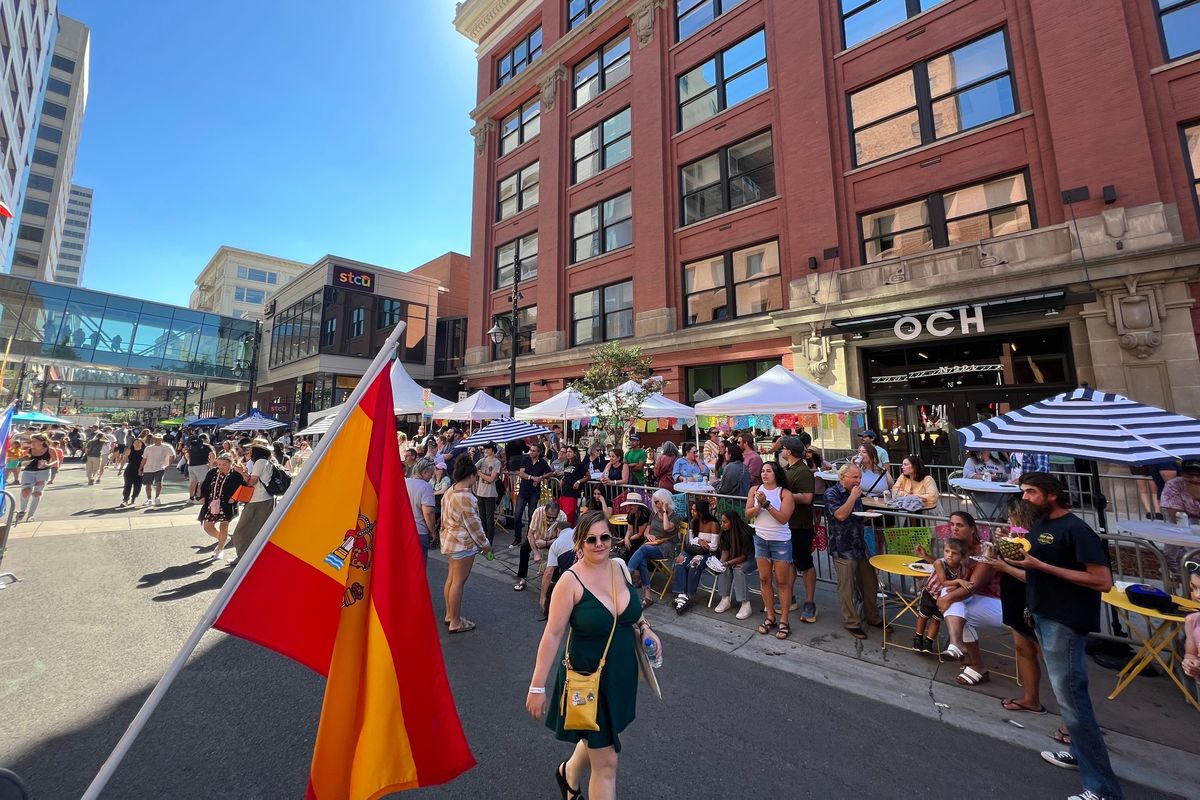Tacos and tequila hit downtown Spokane for second annual celebration of Latin American culture

Crowds of people formed long lines outside of busy street food vendors as the smell of cooking meat, or carne, wafted through the air in downtown Spokane on Sunday. Musicians on stage performed flamenco music nearby.
For the second year in a row, the Tacos y Tequila Festival transformed Wall Street into a scene that could have been a busy street market in Mexico over the weekend. The festival, hosted by the Hispanic Business Professionals Association of Spokane, helps raise funds for scholarships, supports local Latino-owned businesses and celebrates the rich Latin American culture that is steadily growing in Spokane, said Isabel Mazcot de Torres, the association’s vice president of business relations.
Spokane’s Hispanic and Latino population was only 6.6% during the 2020 U.S. Census, but “it’s getting bigger,” she said.
Census data shows that the population is trending upward.
About 14,000 people of Latino ancestry moved to Spokane County between 2010 and 2020, for an increase of 66%, the largest increase of any single racial category in that time frame.
In addition to the scholarships, the Hispanic Business Association of Spokane also provides social services, professional help for business owners and a directory of Latino-owned businesses in the region.
Mexican and Chicano cultures were the most widely represented at this year’s festival, but Mazcot de Torres said there was representation from Columbia, Argentina and Guatemala as well.
Musical performances included traditional Mexican dances from Ballet Folklórico de Spokane to the electro-cumbian style of Seattle-based Terror Cactus.
While tacos and tequila have become staples in American cuisine, Mazcot de Torres said that the festival gives local business owners in Spokane an opportunity to take cultural ownership of the two staples.
“Tacos and tequila are very popular in the U S.,” Mazcot de Torres said. “We are reclaiming this as ours, but we want to share it with you.”
As the festival grew in size this year, Mazcot de Torres said she hopes the event can expand into an additional city block in 2023.
“I’m very happy with the results,” she said. “We just hope the community continues to support us.”